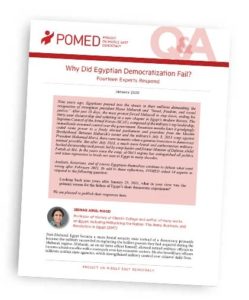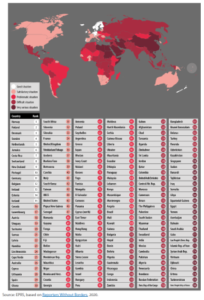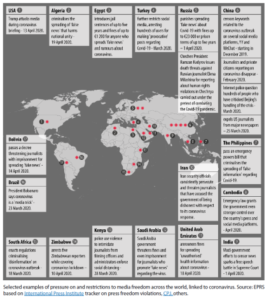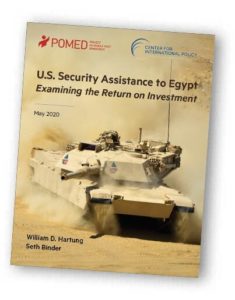“I would describe what we’re seeing in Egypt as a window into how authoritarian power that has been consolidated for years can play out and be leveraged amid a moment of global emergency,” said Mai El-Sadany, managing director of the Tahrir Institute for Middle East Policy.
“On one hand, what we are seeing is the culmination of the control that the Egyptian authorities under President Sissi, especially security forces, exert on Egypt,” said Hussein Baoumi, Egypt researcher for Amnesty International. “The government then used this control to manage the pandemic.”
 Baoumi is concerned that the regime could use the pandemic to crack down on the few remaining civil society groups or online media in the country — or perhaps use virus-tracking applications to increase surveillance in society. “It remains to be seen how the pandemic develops and if the authorities will then use it to restrict the very little space that remains open,” he told the Post.
Baoumi is concerned that the regime could use the pandemic to crack down on the few remaining civil society groups or online media in the country — or perhaps use virus-tracking applications to increase surveillance in society. “It remains to be seen how the pandemic develops and if the authorities will then use it to restrict the very little space that remains open,” he told the Post.
Threats to media freedom are often attributed to the recent rise of populist and authoritarian governments, with many world-leaders – including leaders of major democracies – increasingly seeming to view free media as an opponent, rather than a fundamental aspect of a free society. The knock-on effects of such actions can be grave, particularly given the important role that a free media plays in upholding democracy and democratic freedoms, Naja Bentzen writes for the EPRS, the think tank of the European Parliament.
Media freedom has increasingly come under the spotlight in recent years. In its 2019 report on media freedom, Freedom House argued that media freedom around the world was coming under growing threat both in democratic and non-democratic countries, whilst in its 2020 edition of the World Press Freedom Index, Reporters Without Borders (RSF) argue that the next decade will be pivotal in ensuring the preservation of media freedom.
Read the complete briefing on ‘The impact of coronavirus on media freedom‘ in the Think Tank pages of the European Parliament.



 Egypt’s military-backed government is using the coronavirus pandemic to tighten its grip on the country, human rights activists say. In recent weeks, authorities have ordered up punishments, including prison terms, for anyone they accuse of contradicting official accounts about the pandemic,
Egypt’s military-backed government is using the coronavirus pandemic to tighten its grip on the country, human rights activists say. In recent weeks, authorities have ordered up punishments, including prison terms, for anyone they accuse of contradicting official accounts about the pandemic, 





